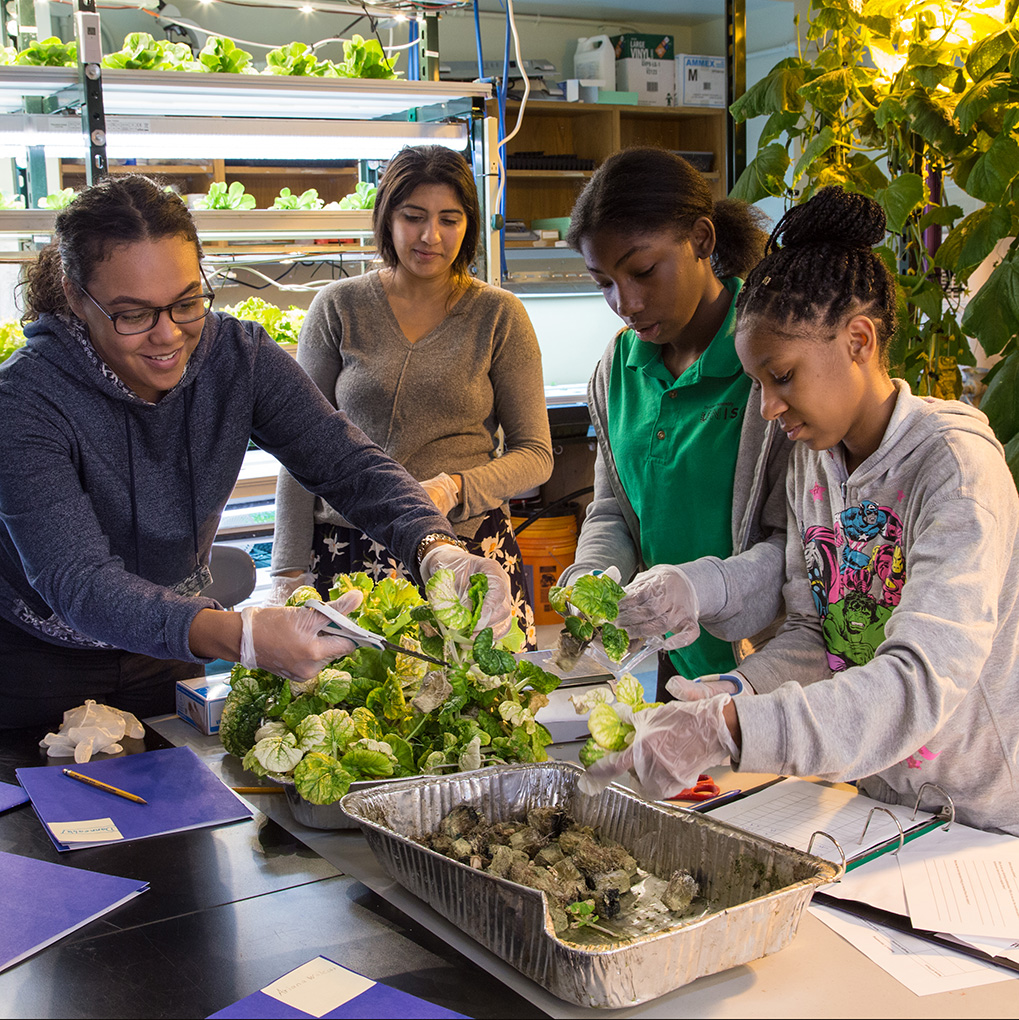Jun 7, 2018
Students Grow Over 25,000 Pounds of Produce a Year in NYC Vertical Farm
CONTENT SOURCED FROM THISISTHEBRONX
THE BRONX, NYC: The students don gloves, wield stem clippers, and each holds a small counter to keep track of the produce.
What used to be the third floor chemistry lab at DeWitt Clinton High School has been transformed into an indoor farm with plants that sit on metal trays and others that hang from hooks. Real food, fresh food, and it’s grown right in their school.
Through Teens for Food Justice (TFFJ) a program that aims to provide hands-on, STEM-based hydroponic science education, DeWitt Clinton students are learning food justice advocacy as well as developing their green thumbs as part of an academic program in sustainability.
Funding from Green Mountain Energy Sun Club, an organization that provides food insecure communities with sustainablility solutions, and Council Member Andrew Cohen helped create the school’s $126,870 hydroponic farm. It was designed to continue the on-going sustainable education program at the school started by teacher Ray Pultinas (now retired, but still comes in to work with the farm and school’s garden programs).
 Students at work in their hydroponic farm. (Teens for Food Justice)
Students at work in their hydroponic farm. (Teens for Food Justice)
The DeWitt Clinton Sun Club farm debuted during the 8th Annual Fall Harvest Celebration at the school’s campus this past fall, and runs on a vertical hydroponic system that allows students to effectively grow crops in water with natural fertilizer instead of soil.
Over 25,000 pounds of plants a year are grown in the urban farm and are distributed to students, in the cafeteria, and given to food pantries around the area through City Harvest, according to the Harrison Hillier, the hydroponics Manager. About 30 pounds of produce are used to feed students in the school’s cafeteria each week.
Food justice advocacy is especially important because the Clinton campus is located in one of the most healthy food-starved communities in the City, according to TFFJ. The students are now getting an education that will help them fight for a healthier Bronx.
“It’s important because some people may not have the resources,” Beata Tutu, a 14-year-old freshman said while she was working at the initial process of turning seeds into edibile plants. “I could go outside and buy food, but that doesn’t mean that I’m in a food secure area where there is healthy food.”
The Bronx is often referred to as ‘the unhealthiest borough’, but students like Thierno Bah and Derek Morales, both 16-year-old sophomores, are doing what they can to dethrone the moniker for their generation and Bronx generations to come.
Bah, who is also on the Governer’s football and track teams has already seen the short term effects of healthy living.
“I have to eat healthy in order to play well and now my body is more in shape. I feel more energized, more active,” he said.
For Morales, it’s about spreading what he’s learned to his family.
“My little brother is seven-years-old and I tell him from time to time that junk food isn’t really good for you,” he said. “Hopefully when he gets older he can teach this to his kids and they will keep passing it on and on.”
